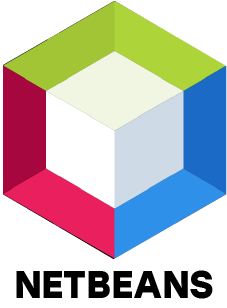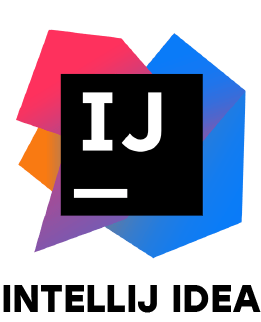Our Java Training in the urban learners concerning Java Programming ideas from scratch to associate intermediate level, with a prestigious, distinguished Oracle eligibility and through realistic examples, to create you qualify for a Java Developer role. Chiefly specialize insensibly and help. Java Certification Training in Ahmedabad can equip you with the technician data of its advanced functionalities like operators, arrays, loops, methods, and constructors by supplying you with active application in JDBC and JUnit framework, etc. At our institutes, we train specialists for many programming languages, including Java, with a record of successful people churning who are trained to teach the language. We provide the greatest technique and design that will train you to the core. We assist you to acquire skills necessary for the development of high-performance applications for various android web services.
Additional Info
What is Java ?
Java may be an all-purpose, class-based, object-oriented programming language designed for having lesser implementation dependencies. A computing platform for application development. Java is quick, secure, and reliable, therefore. Java applications in laptops, information centers, game consoles, scientific supercomputers, cell phones, etc.
This Java training is aimed to guide you from introductive to advanced programming abilities through the fundamentals of Java. The Java course also offers you strong expertise in JDBC and JUnit frameworks, including the knowledge of Core Java 8 operations, arrays, loops, methods, and manufacturers.
What will a Java developer do ?
A Java Developer is liable for the planning, development, and management of Java-based applications. As a result of Java being employed therefore widely, notably by massive organizations, the daily roles very wide, however, will embrace owning a specific application or functioning on many at just one occasion.
Java Features :
- It is one of the easy-to-use programming languages to find out.
- Write code once and run it on nearly any computing platform.
- Java is platform-independent.Some programs developed in one machine are dead in another machine.
- It is designed for building object-oriented applications.
- It is a multithreaded language with automatic memory management.
- It is created for the distributed setting of the net.
- Facilitates distributed computing as its network-centric.
Roles and Responsibilities :
Designing, implementing, and maintaining Java applications that are usually high-volume and low-latency, needed for mission-critical systems.
Delivering high handedness and performance Contributing altogether phases of the event lifecycle Writing well-designed, efficient, and testable code Conducting code analysis, programming, testing, and debugging.
Managing Java and Java applied science application development. Ensuring styles suits specifications Preparing and manufacturing releases of code elements. Transforming necessities into stipulations, Support continuous improvement. Investigating alternatives and technologies. Presenting for subject review
Benefits of Java :
Java-based applications square measure glorious for his or her speed & quantifiability. Java’s economical process speeds square measure utilized in the package, laptop games, and mobile apps. (Indeed, Java is the artificial language of an alternative for mechanical man). Java could be a statically typewritten language so that it brings away a bigger degree of safety and stability to its programs compared to alternative widespread languages.
This safety and stability could be a necessity for firms that need major information measures in their package and apps.No talent shortage.
New programmers typically begin learning Java early as a result of it’s simple to interrupt, although it will take time to master. Thanks to its simple use, this square measures several Java developers for firms to rent.
Career path :
There are several certifications that a Java Developer will acquire. These certify each Java language proficiency and roles and responsibilities. For those people career pathing in Java development, certifications are a vital unit.
Oracle offers a variety of ways for Java developers to advance their career through certification and coaching programs. coaching is targeted around application development and the fundamentals of program design.
Skills Required For Java :
- Understand once memory is being allotted, from what context, and the way it affects heap fragmentation.
- Data-intensive applications, especially, use libraries that need giant contiguous areas of heap. Excessive fragmentation will cause Out Of Memory errors once allocating these giant objects.
- Threading native objects high on the stack square measure is generally not a priority. Globals and objects low on a thread’s stack, particularly changeable objects, square measure a priority.
- Be at home with the assorted trash collection algorithms, and the way to use the profilers.
- GC pauses will kill latency-sensitive applications (services and workers).
- The G1 collector may be a solid selection for many applications of this kind however isn't continuously best – particularly for small services that find themselves being heavier on memory usage than originally anticipated.
- Know about cache coherence and fence directions.
- This is the ‘volatile keyword in Java. Not exploiting it (where appropriate) results in refined bugs.
- If there's one author, then this can be not difficult.
Use LongAdder wherever applicable (commutativity maybe a friend).
- Understand thread pools.
Frameworks of Java :
- Struts :
Apache Struts is another sturdy ASCII text file framework for internet applications. It follows the MVC (Model-View-Controller) model and extends the JSP API. in a very ancient servlet-JSP approach if a user submits let’s say a type along with his details, the knowledge then goes to a servlet for process or the management goes over to the next JSP (Java Server Pages – wherever you'll be able to write Java code in associate HTML). This becomes confusing for complicated applications because the ‘View’ or presentation layer ought to ideally not have business logic.
Struts separate the read, Controller, and also the Model (data) and provide the binding between every through a configuration file struts-config.xml. The controller is associated with ActionServlet wherever you'll be able to write templates for the read and also the user information is maintained by the ActionForm JavaBean. The Action object is accountable for forwarding the applying flow.
- Hibernate :
Though Hibernate isn't a full-stack framework, it fully modified the means we tend to check out the info. Implementation of Java Persistence API (JPA), Hibernate is associate Object-Relational-Mapping (ORM) info for Java applications. similar to SQL queries in Hibernate are referred to as HQL (Hibernate question Language).
Hibernate directly maps Java categories to corresponding info tables and the other way around.The main gist of hibernate is that the hibernate.cfg.xml file contains info regarding mapping Java categories with info configuration.
- Apache Wicket :
If you have already worked with JSP, the educational wicket is a cakewalk. straightforward Java internet frameworks, Wicket contains a component-oriented structure and everyone you would like to understand is Java and hypertext markup language. fully no XMLs or configuration files!
The main feature of Wicket is its POJO model whereby elements are straightforward (Plain Old) Java Objects having OOP options. These elements are bundled along as reusable packages with pictures, buttons, forms, links, pages, containers, behaviors, and a lot of so developers will customize them.
- JSF(Java Server Faces) :
Don’t confuse JSF with JSP, that is simply a text document that may have static and dynamic content. JSF is developed by Oracle as a region of the Java Enterprise Edition seven.
It is a component-based MVC framework and has reusable UI elements for server-based applications. The best plan is to encapsulate varied client-side technologies like CSS, JavaScript, and hypertext markup language which will enable developers to make UI while not knowing any of those technologies in-depth. they'll simply drag and drop UI elements and focus a lot on their presentation layer specifics.
- Dropwizard :
Another Java framework faithful its name – wizard. This lightweight framework allows you to complete your application in no time as a result of its out-of-the-box support for advanced configurations, logging, application metrics, and far a lot of. you'll be able to produce quiet internet applications that provide high performance, are stable, and reliable.
Dropwizard is particularly supernatural as a result of it brings along several libraries like a barrier, Guava, Jersey, Jackson, and Metrics amongst several others from the Java system into one framework and offers you a lightweight and lean application.
- Grails :
Grails is straightforward to be told, a full-stack framework a lot appropriate for those that are simply starting their programming career. whereas Grails could be an internet framework written in Groovy programming language, it runs on the Java platform and is compatible with Java syntax. This framework is predicated on the MVC style pattern.
Groovy is comparable to Java in that it has a lot of accessorial options in comparison to Java. It's simple to be told by Groovy if you already grasp Java.
- ATG :
ATG could be an internet commerce platform written in Java. it's a customizable and configurable framework, notably helpful for websites associated with e-commerce. The merchandise is in hand by Oracle and supports each B2B and B2C application that are complicated and big. for little scale applications, it may be expensive, however. If you're going in developing e-commerce websites, ATG could be a sensible framework to be told and can enrich your technical further as domain information.
- Play :
The play could be a slightly typical and distinctive form of framework that follows the approach of convention over configuration. It supports the MVC pattern associated with an ASCII text file internet application framework. except for Java, you'll be able to write Play internet applications in Scala.
- Apache Hadoop :
Though Apache Hadoop isn't a full-stack framework, it provides a package framework and works on the MapReduce programming model. These utilities will simply handle immense volumes of information (Big Data), store, analyze, and method them to supply quicker and a lot of economical results.
I have enclosed Hadoop during this list as a result of its ‘thing’ nowadays with huge information gaining prominence.
Payscale :
An entry-level Java Developer with but one year of expertise will expect to earn a mean total compensation (includes tips, bonus, and overtime pay) of 344K supported thirty-seven salaries. Associate early career Java Developer with 1-4 years of expertise earns a mean total compensation of 492K supported 297 salaries. A mid-career Java Developer with 5-9 years of expertise earns a mean total compensation of 967K supported one hundred and one salaries. Associate experienced Java Developer with 10-19 years of expertise earns a mean total compensation of 130K supported eighteen salaries.








































